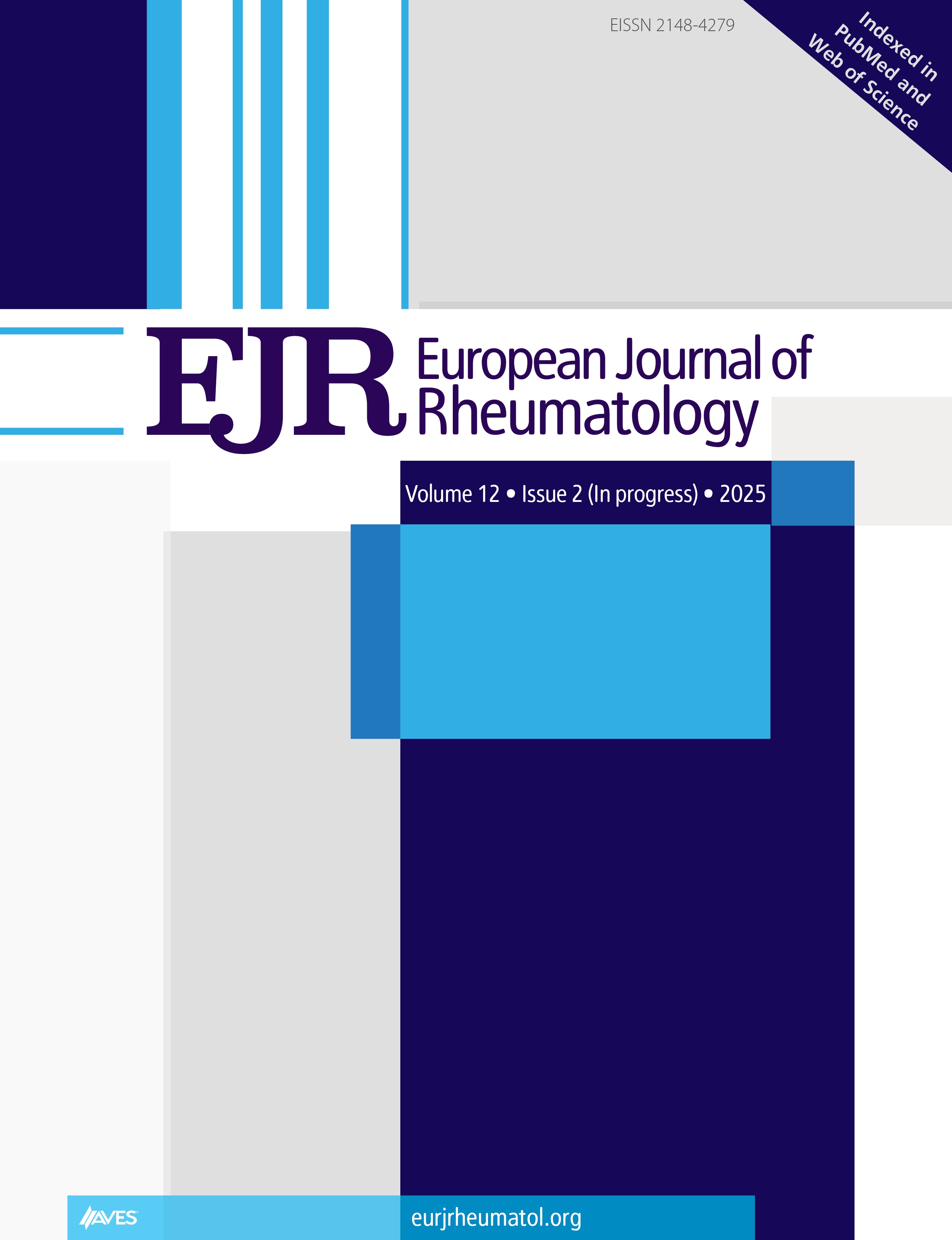Objective: Combination therapies have been proposed as a strategy to control inflammation more effectively in patients with rheumatoid arthritis (RA). Few studies examine the combined effect of methotrexate (MTX) and leflunomide (LFN). This study evaluated the symptom control and side effects of the combination of MTX and LFN compared with LFN monotherapy.
Methods: We conducted a retrospective analysis of 113 patients with RA treated with either LFN alone (n=22) or in combination with MTX (n=91). Data on disease activity score 28 erythrocyte sedimentation rate (DAS-28 ESR), DAS-28 C-reactive protein (DAS-28 CRP), blood cell count, liver enzymes, and creatinine levels were determined. Samples were collected on day 0 (initiation of LFN) and at 6 and 12 months.
Results: We found no differences between the 2 groups in DAS-28 on day 0 and at 6 and 12 months (p=0.89, p=0.42, and p=0.09, respectively, for DAS-28 ESR; p=0.97, p=0.27, and p=0.63, respectively, for DAS-28 CRP). In addition, we observed no differences in the blood cell count, liver enzymes, and creatinine levels between the treatment groups at any of the time points (all p>0.05).
Conclusion: Our results suggest that the efficacy of the combined treatment with MTX and LFN is similar to that of LFN alone. No increase in toxicity was observed with the combination therapy.
Cite this article as: Guadagnin DA, Mazzali LV, Skare TL, Kahlow BS. Treating rheumatoid arthritis with leflunomide monotherapy versus combination therapy with methotrexate. Eur J Rheumatol 2021; 8(1): 12-5.



.png)